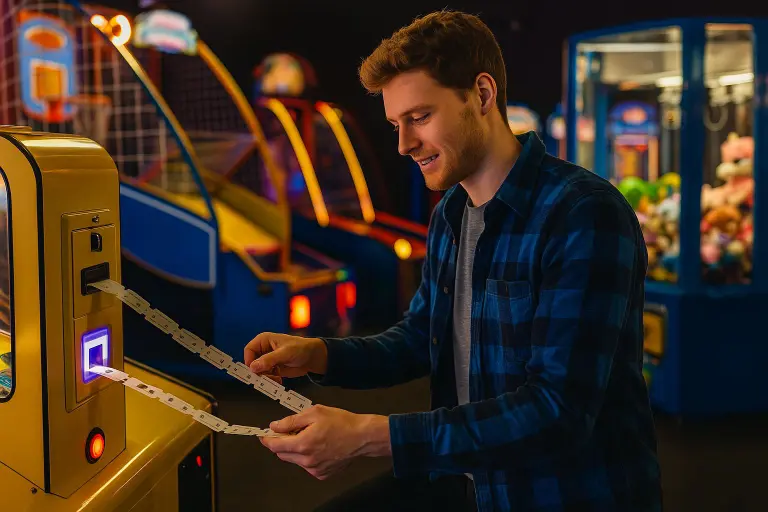Prize machines attract people with the promise of rewards and excitement. So, what’s the deal with these devices that makes everyone want one? Figure out the tricks our minds play, and you’ll see exactly what keeps people hitting those buttons, hoping for a big score.
The real kick you get from waiting.
You keep dropping coins into prize machines because the excitement of a possible win pulls you back again and again. Every go brings that exciting feeling of a fresh start. You just know your next shot is the one that’ll hit. The hope of winning, combined with the thrill of uncertainty, keeps interest alive. Individuals often remember the anticipation more than the outcome, which sustains their motivation. It is worth noting exactly how perceived control impacts engagement as you discover prize machines now.
Reward Systems and the Human Brain
Humans are naturally drawn to rewards. See, prize machines capitalize on a basic human urge. They instantly show you results, which then sparks a good feeling in your brain. Each time an individual receives a prize or even comes close to winning, dopamine is released. This chemical builds up your desire to repeat the activity. Each new chance to try it out suddenly looks much more inviting. The unpredictability of rewards helps maintain high engagement.
Near-Misses and Their Influence
Near-misses play a critical role in driving repeat play. When individuals come close to winning, they often experience a burst of excitement. That rush can feel almost as good as actually grabbing a prize yourself. Experiencing an outcome that narrowly misses a desired achievement often cultivates a strong perception of imminent success, thereby compelling further engagement. A clever mental trick is at play here. It keeps folks showing up, even when winning feels rare.
Variable Rewards and Motivation
Prize machines rarely offer consistent rewards. Instead, they use a variable schedule, where wins appear random and unpredictable. Just like many popular games, this method holds interest because you never quite know what’s coming next. Variable rewards keep engagement levels high, as individuals hope that the next attempt will be the winning one. The uncertainty itself becomes motivating.
Social Factors and Peer Influence
Social settings can amplify the attraction of prize machines. When people observe others winning or participating, they may feel encouraged to join in. Have you ever noticed how a crowd can just amplify the energy? That feeling really sparks more thrill and a stronger push to win. Some individuals feel a sense of belonging or validation when playing in groups. Having friends along really ups the fun factor. Those good times make you want to join in again and again.
Loss Aversion and Continued Play
Loss aversion shapes decision-making in prize machine play. Many individuals dislike ending their session on a loss, so they continue playing to recover what they perceive as lost. The desire to avoid regret or disappointment can make quitting a difficult decision. Such a perspective often initiates a repetitive pattern. Individuals might relentlessly seek new successes, believing these can offset or rectify prior unfavorable results.
The Allure of Collectibles
Some prize machines offer collectible items, which can be especially appealing. Most folks really love putting together a complete collection or hunting down a scarce find. The pursuit of a full collection can drive repeated attempts, as each try brings the possibility of finding a missing piece. Imagine how collecting special items keeps you wanting to continue.
Simplicity and Accessibility
Prize machines are designed to be easy to use, making them accessible to a wide audience. Easy rules and clear play make it easy for anyone to jump right in. You can easily join and take a chance, no experience needed at all. It’s simple to learn. That brings people back often.
Conclusion
Prize machines captivate people by appealing to several psychological triggers. Players keep coming back thanks to the thrill of what’s ahead, earned rewards, social ties, and a personal bond. When business owners truly grasp these points, they can create environments where customers feel both excited and secure, whether through thoughtful service or clear guidelines. When people learn the mental tricks involved, they can enjoy these games and still make informed decisions about how much to play.





